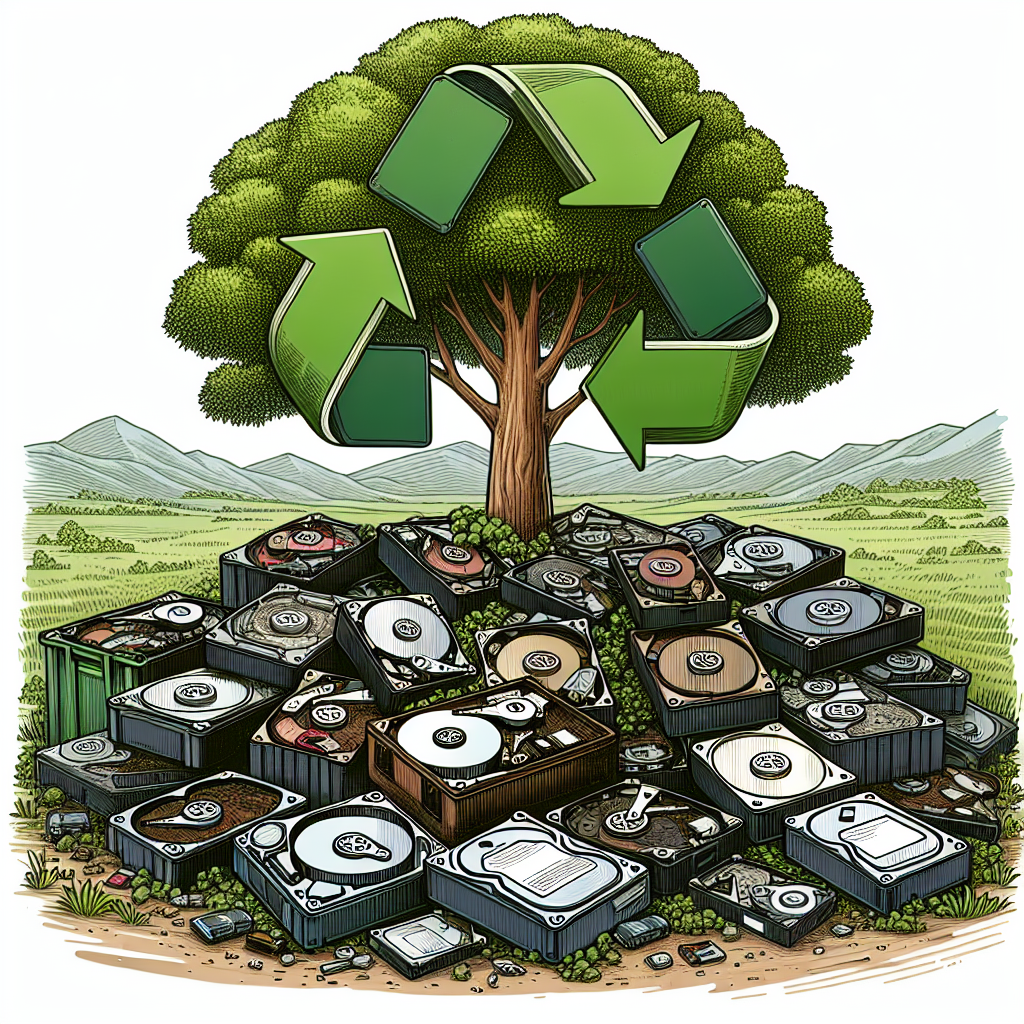Your cart is currently empty!
The Environmental Impact of Hard Drives: How to Recycle and Dispose of Them Responsibly

Hard drives are an essential component of modern technology, used in everything from computers to servers to external storage devices. However, the production and disposal of hard drives can have a significant impact on the environment. From the mining of raw materials to the energy used during manufacturing, hard drives contribute to carbon emissions, water pollution, and e-waste accumulation.
The mining of materials such as aluminum, copper, and rare earth metals for hard drive production can result in habitat destruction, soil erosion, and water contamination. Additionally, the manufacturing process requires large amounts of energy, contributing to greenhouse gas emissions and climate change. Once a hard drive reaches the end of its life cycle, improper disposal can lead to toxic substances leaching into the soil and water supply.
To mitigate the environmental impact of hard drives, it is important to recycle and dispose of them responsibly. Here are some ways to do so:
1. Recycle through a certified e-waste recycling facility: Many cities and towns have e-waste recycling programs that accept old hard drives and other electronic devices. These facilities are equipped to safely dismantle and recycle the components of the hard drive, ensuring that toxic materials are properly disposed of and valuable metals are recovered for reuse.
2. Donate or resell working hard drives: If your hard drive is still functional, consider donating it to a local charity or school, or selling it to a second-hand electronics store. This extends the life of the hard drive and reduces the demand for new ones to be manufactured.
3. Use a data destruction service: Before recycling or disposing of a hard drive, it is important to ensure that all sensitive data has been securely erased. Many e-waste recycling facilities offer data destruction services that use specialized software or physical destruction methods to ensure that data cannot be recovered.
4. Participate in manufacturer take-back programs: Some hard drive manufacturers offer take-back programs where they will recycle old hard drives for free or for a small fee. Check with the manufacturer of your hard drive to see if they offer this service.
By taking these steps to recycle and dispose of hard drives responsibly, you can help reduce the environmental impact of these essential pieces of technology. By choosing to recycle instead of throwing them away, you are not only protecting the environment but also conserving valuable resources for future generations.

Leave a Reply